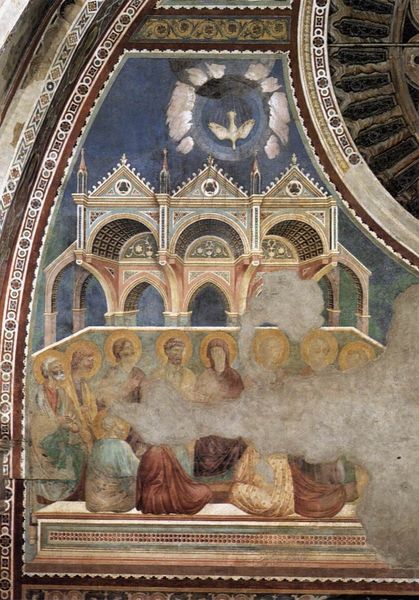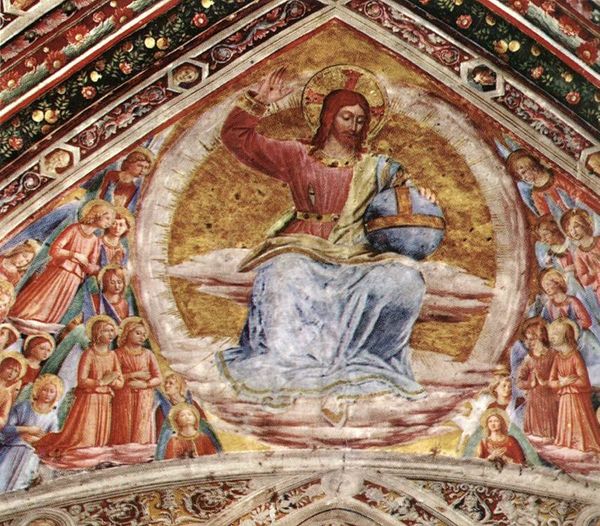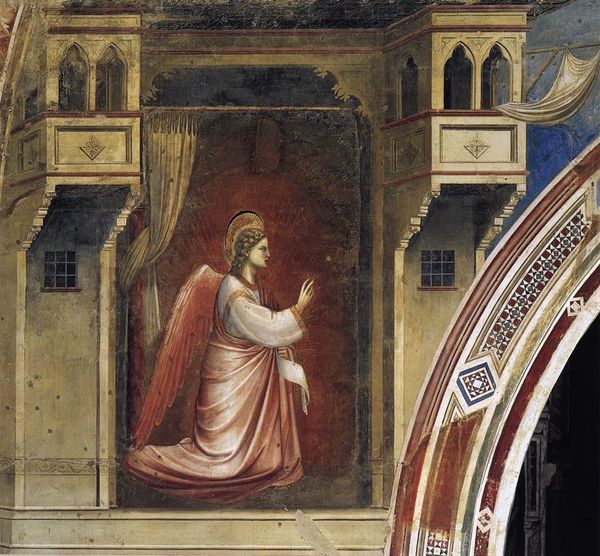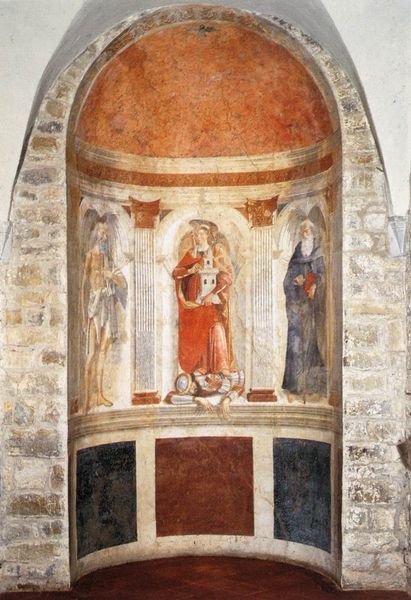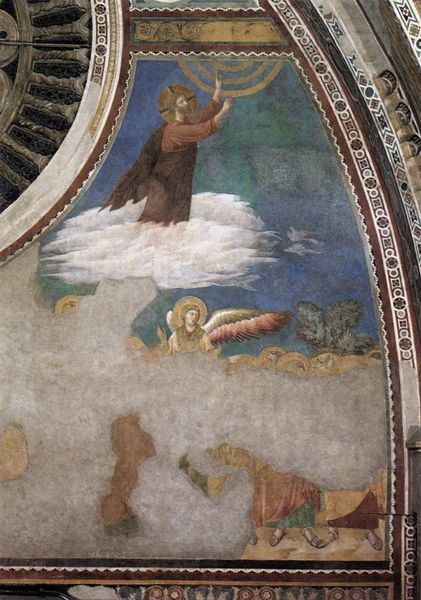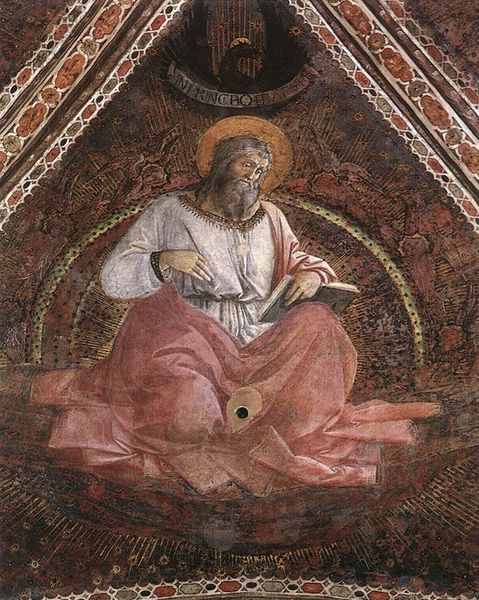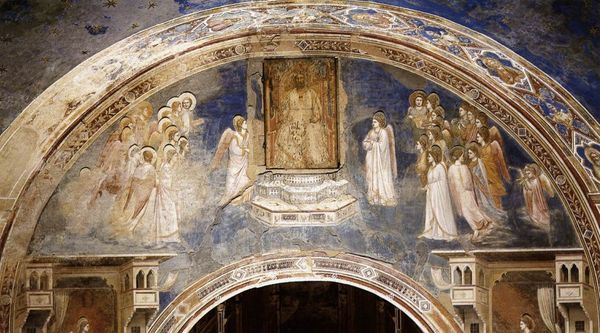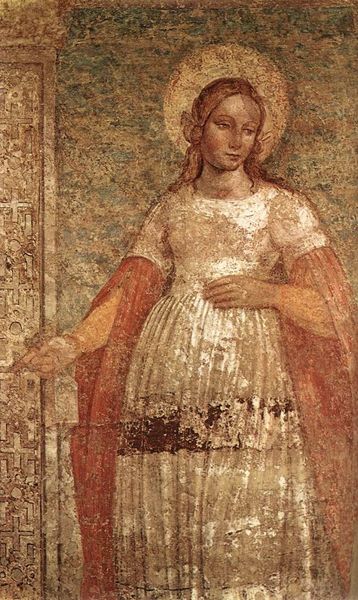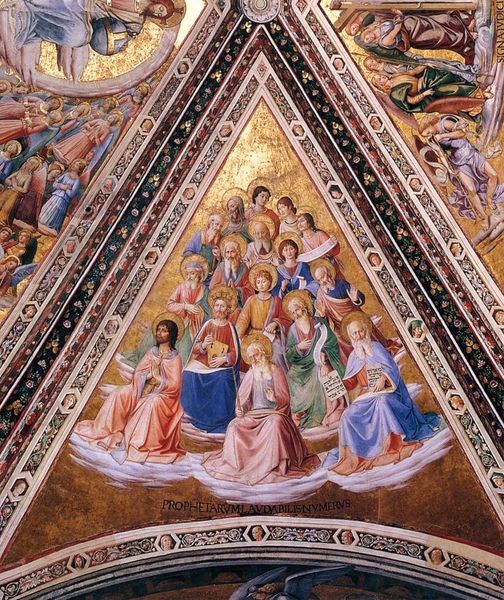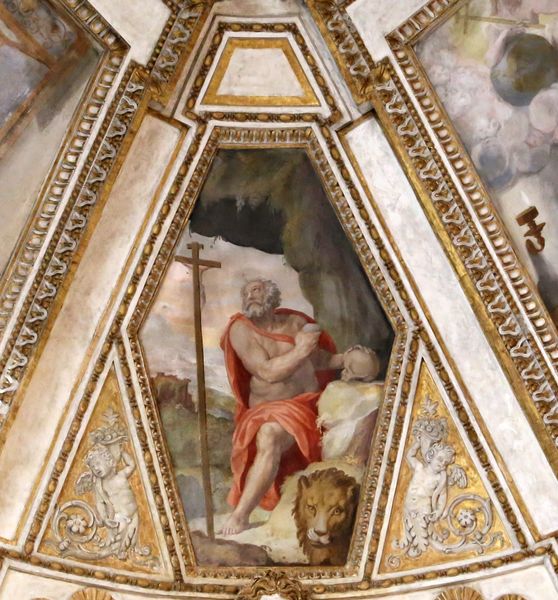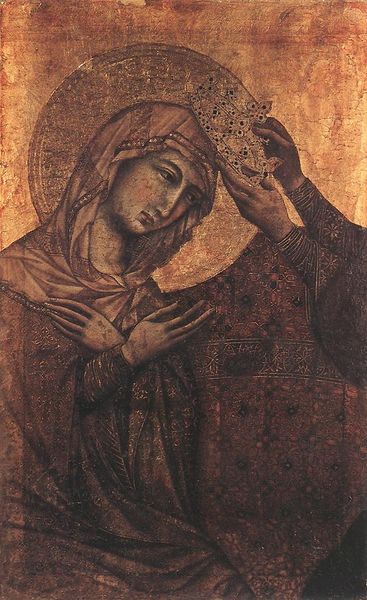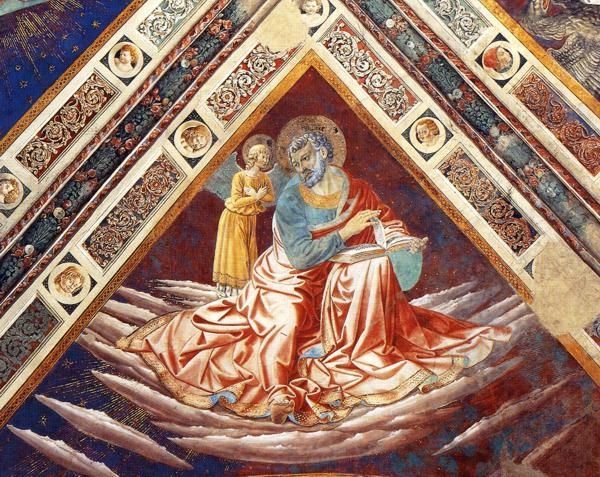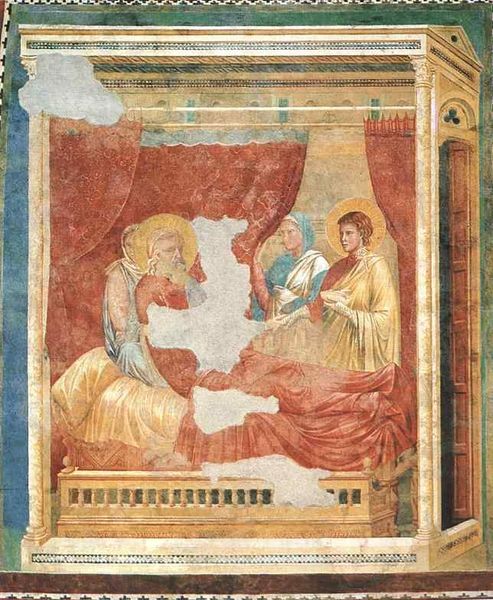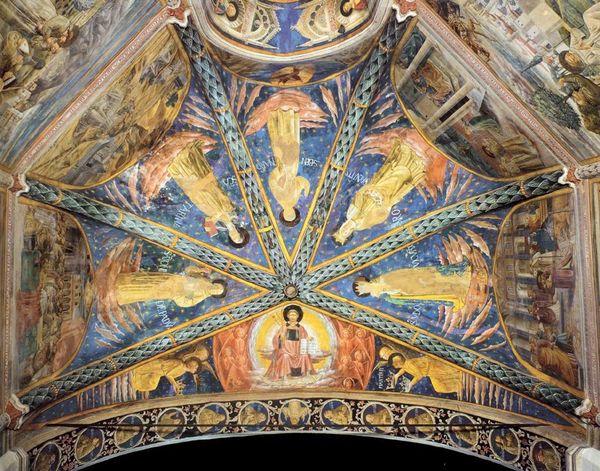
tempera, painting, fresco
#
portrait
#
tempera
#
painting
#
figuration
#
fresco
#
oil painting
#
christianity
#
italian-renaissance
#
mixed media
Copyright: Public domain
Filippo Lippi painted this fresco of St. Luke the Evangelist in the mid-15th century. It presents us with a figure of religious authority, yet he is depicted in a moment of quiet contemplation. This invites us to think about the role of the church and the intellectual life of Renaissance Italy. The image employs a few visual codes. The halo identifies St. Luke as a holy figure. The act of contemplation associates him with wisdom and divine inspiration. Painted in Florence, Italy, at a time when humanist ideas were flourishing, it reflects a culture of intellectual inquiry that was heavily influenced by rediscovering classical texts. Lippi himself was associated with the Medici family, who were major patrons of the arts and promoters of humanist scholarship. To understand this painting better, we might look at other examples of religious art from the period. We can examine historical documents that shed light on the relationship between artists, patrons, and religious institutions. This approach helps us understand the ways in which art is always embedded in a specific social and institutional context.
Comments
No comments
Be the first to comment and join the conversation on the ultimate creative platform.
